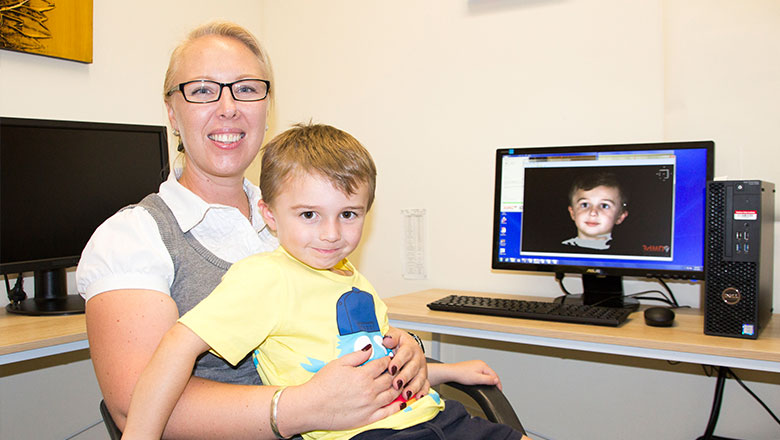Search
News & Events
Further evidence of testosterone link to autismA new study from Perth's The Kids for Child Health Research has uncovered more evidence of a link between early testosterone levels and autism.

News & Events
3D face scanner could improve early diagnosis for kids with autismCan you see signs of autism in a child's facial features? Telethon Kids researchers have acquired new face scanning technology to help answer this question.

News & Events
Professor Andrew Whitehouse on ABC720Autism researcher Professor Andrew Whitehouse was on 720 ABC Perth yesterday taking questions on child health.
News & Events
An evening for the future of autismJoin Dr Andrew Whitehouse, head of Developmental Disorders research at The Kids, as he shares with you his vision for autism research.

News & Events
Early diagnosis for kids with autismFocussing attention on a child’s first year of life is proving to be a major breakthrough in autism research.

News & Events
CliniKids clinicians rise to the COVID-19 challengeThe CliniKids team has reimagined how allied health services for children with autism spectrum disorder or developmental delays are delivered.

News & Events
Sibling’s likelihood of autism diagnosis impacted by age gap, study findsThe Curtin University research in collaboration with The Kids Research Institute Australia, published in Autism Research, investigated more than 925,000 births in Denmark, Finland and Sweden.

News & Events
Directing immune development to curb sky-rocketing diseaseOnce upon a time it was infectious diseases like polio, measles or tuberculosis that most worried parents. With these threats now largely under control, parents face a new challenge – sky-rocketing rates of non-infectious diseases such as asthma, allergies and autism.

News & Events
Fundraising star: Chloe (11) Bakes for Autism ResearchChloe recently decided to bake cupcakes to sell to her school friends and teachers and it was all for a cause very close to her heart - autism research.

News & Events
New autism guideline a lifeline for familiesProfessor Andrew Whitehouse tells how Australia’s first national guideline for the diagnosis of autism spectrum disorder is going to transform the way the condition is assessed and managed, vastly improving the experience for families.
